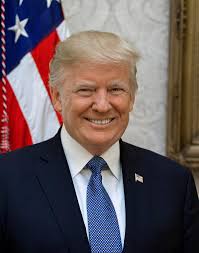
Donald Trump’s recent electoral victory has reignited discussions about his stance on key social issues, particularly among conservative and religious groups who view him as a champion of pro-life and pro-family values. With control of both the Senate and the House of Representatives, many believe that his administration will usher in a new era of conservative policies.
However, a closer examination of Trump’s political history raises critical questions about the authenticity of his convictions. Has he genuinely transformed into a pro-life advocate, or is he merely adapting his rhetoric to align with the current political landscape? Understanding the complexities of Trump’s past and present positions is essential for evaluating the true nature of his leadership and its implications for American society.
Donald Trump has made a significant comeback, winning both the popular vote and the Electoral College in the United States, securing majorities in both the Senate and the House of Representatives. This victory has brought joy to many conservatives and religious groups, who perceive it as a sign of a more pro-life and pro-family political direction in the new administration. However, it is essential to consider the broader context of Trump’s political history and the implications of his policies.
Firstly, it is crucial to recognize that Trump and the Republican Party’s current stance on these issues represents a “lesser evil” compared to what is offered by Kamala Harris and the Democrats. This suggests that while Republican policies may be viewed as more favorable, they are not necessarily good; they are simply less detrimental than their Democratic counterparts.
- Biographical ContextDonald Trump has long been perceived as a liberal, a characterization supported by his actions throughout most of his life. A glance at his 2007 autobiography, “Think Big and Kick Ass in Business and Life,” or his interviews with Playboy in 1990 and NBC in 1999 reveals a man who has often embraced a Hobbesian worldview. The British philosopher Thomas Hobbes (1588-1679) argued that humans primarily act to satisfy their self-interests in a hostile world. This perspective sheds light on Trump’s individualistic, adaptable, and competitive nature.
- Political ContextTrump’s political journey began as a registered Democrat in 1987, and he briefly joined the Reform Party in the late 1990s, a movement initiated by billionaire Ross Perot. During this period, he openly supported abortion rights and LGBT activism. The question remains: was this a matter of conviction or mere strategy? Notably, in 2001, Trump endorsed Hillary Clinton’s Senate campaign, despite her well-known pro-abortion stance.
When did Trump’s convictions change, if they ever did? In 2009, he registered with the Republican Party, and by 2012, he began to adopt a conservative rhetoric that culminated in his 2016 presidential nomination. However, in 2024, his discourse appears to have shifted once again.
On August 23, 2024, he posted on his social media platform, Truth Social, that his administration would be “great for women and their reproductive rights.” The term “reproductive rights” is widely understood to include access to abortion. In a subsequent interview, Trump suggested that six weeks is too short a timeframe for abortion restrictions, indicating a more lenient stance than many conservatives would prefer.
Moreover, he has proposed that his administration would cover all costs associated with in vitro fertilization (IVF), a process that often involves the discarding of multiple human embryos. Additionally, Trump expressed support for legalizing marijuana, which further complicates his image as a staunchly pro-life candidate.
Given these statements and actions, it can be argued that Trump is not as pro-life and pro-family as many believe or wish to believe. His fluctuating positions raise an important question: Is Trump genuinely a pro-life, pro-family politician who has adopted these views as a strategic move to win elections, or is he merely a liberal who adjusts his political rhetoric for convenience?
In conclusion, while Trump’s recent electoral success has been celebrated by many within conservative and religious circles, it is crucial to critically assess the authenticity of his pro-life and pro-family claims. The distinction between genuine conviction and political opportunism remains a pivotal issue in understanding Trump’s impact on American politics and the future of the Republican Party.

s




